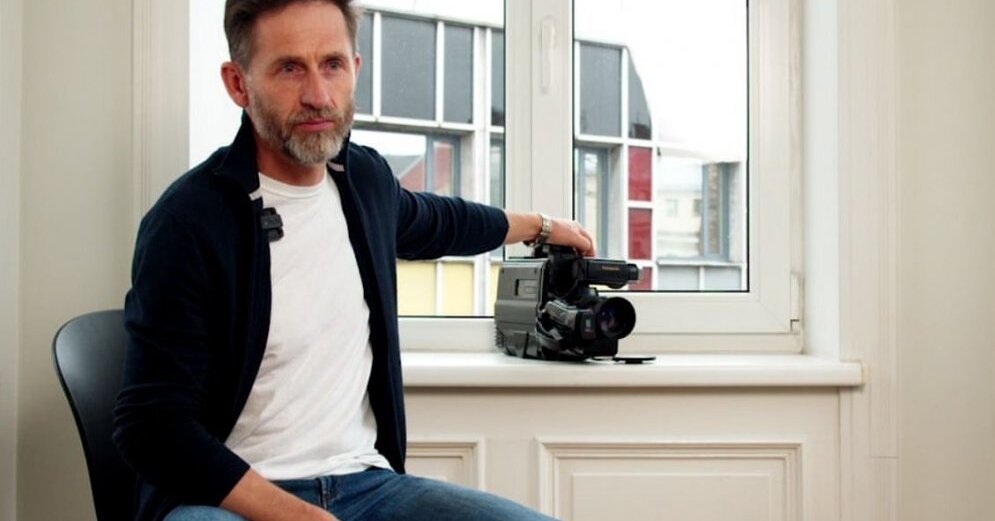During the national holiday month of November, director Viesturs Kairiš’s new film “January” came to the big screens, the story of growing up of a young cinematographer in January 1991, so important for the country of Latvia. In anticipation of the film and celebrating the independence of Latvia, we present eyewitness stories from the time of the barricades of those who say that the film “January” is about them. Because the story exists not only in historical monographs, but also in its retelling, but the stories help to “travel back in time” – to the life that happened 30 years ago and about which these people tell their children these stories. In the ninth episode – the documentary maker of the barricades, the mountaineer Kristaps Liepiņš.
The content will continue after the announcement
Advertising
“It was shock therapy”
The mountaineer Kristaps Liepiņš is a documentary filmmaker of the time of the barricades. Similar to Jazis, the protagonist of the film ‘Janvāris’, Kristaps documented that period with a camera, witnessing many important events of the national revival and recording them through the eye of the camera. Some documentary footage is included in the film “January”, a large part of it can be seen in the exposition of the Barricade Museum.
“It must be said that my life is not closely intertwined with the story of the film ‘January’, nor can it be said that we only intersect at one point,” concludes Kristaps, noting that the story needs a continuation, because nothing is finished with the tragic events of Bastejkaln. Already at that time, Kristaps filmed the events, being quite clearly aware of what was happening and what bets were placed on the big game. “However, at that time there was enthusiasm that maybe we could really so peacefully agree with the Soviet Union, that we could regain our independence in such a beautiful way – singing, but January came with real , cold shower. It was shock therapy. A singing revolution, of course, sounds good, but revolutions don’t just happen in singing,” says Kristaps Liepiņš.
The MS1 Panasonic SVHS camcorder with which everything was filmed has a particular story. In late 1989, Kristaps’ father Edgars Liepiņš brought him back from a US concert tour. At that time, he was the only one of his kind in Latvia. The father took the video camera, which was still in the box, out of bed, gave it to Kristaps, telling him to learn how to film. It was not a gift, but a tool for learning. This was done, many of his father’s concerts and many weddings were filmed. But after his father’s death in 1995, this camera was sold to one of the regional TV stations. “That was the time and the need then,” says Kristaps. After serving his life well, the camera was returned to Kristaps as a priceless artifact of the era.
Time travel. January 1991
January 1991 was a month that the generations who lived it always remember and tell about. They can tell this time in months, weeks or hours.
In Riga, OMON fighters occupied the press room on January 2, paralyzing the publication of press releases. On January 7, following the order of Mikhail Gorbachev, Dmitry Yazov issued an order to send airborne troops to Latvia, Lithuania and Estonia under the pretext of joining the USSR Armed Forces. In those January weeks, Riga TV broadcast the 26th lesson “What’s the date?” of the English teaching program “English for you”, and the 1st All-Union program of the “Octopus-4” series. The beginning of the 1990s was a “turning point” in the history of Latvia, when the coming-of-age story took place for those who were pupils and students at that time and who in various forms shape the Latvia of today.
Viesturs Kairis’ new feature film “January” is a personal story of director Viesturs Kairis, who was 19 at the time and who claims to know the characters in his film, even if they are fictional. He says: the film is about the beginning, the first month of the year, when we all chose freedom.
“January” is a historical and autobiographical excursion during the 1991 barricades about young filmmakers involved in the January 1991 political events in Riga.
The film has been shown in cinemas across Latvia since 11 November.


